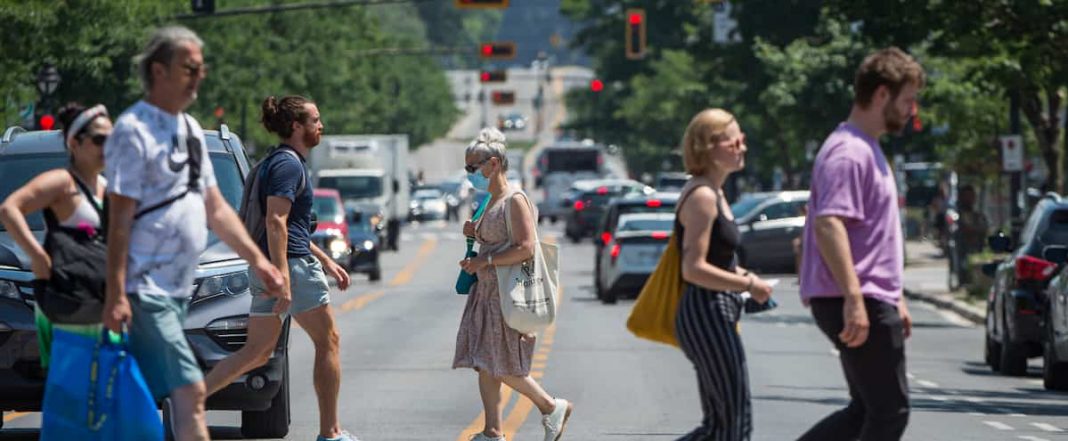The race against variants, particularly against the delta, is well underway in Quebec, and if 81% of 12-year-olds and over get the first dose, only 50% of the population is adequately vaccinated with two doses, which is insufficient to protect the population.
• Read also: COVID-19: 50% of Quebec’s population fully vaccinated
• Read also: COVID-19 cases are on the rise in all US states
“As long as people are not vaccinated with two doses, we will never be sure: 50% of the population is still a large number of people who can become infected, who can transmit and who are at high risk of hospitalization in terms of potential for effects on people’s health as well as on health services “We are not immune to experiencing what we see elsewhere,” biochemistry professor, Dr. Natalie Grandvaux, explained in an interview with LCN on Friday.
The epidemic continues to accelerate worldwide with the exception of Latin America. A new containment has been put in place in Spain, mask-wearing will become mandatory in Los Angeles County, and cases are on the rise in the US due to the low rate of vaccination.
In Quebec, second doses were delayed so much, that Quebec launched a lottery to encourage residents to receive their first or second dose of the vaccine more quickly.
While Dr Grandvaux praised the fact that the government is putting in place strategies to encourage people to get vaccinated, she questions whether that will be enough.
“I don’t know if we will get to the same coercive methods of enforcing the vaccine as for health workers in France, it will really be a change of government strategy, but if there is no response to constructive incentives, we will have to ask the question … and rethink in a different strategy.
Another element that can be worrying about our health system, but is not taken into account in the data, is that many cases of COVID are prolonged.
Dr. Grandvaux believes that “long-term symptoms are something else we don’t take into much consideration at the moment, but which will overwhelm our health services and affect people’s health.”
Modify the rules?
The biochemistry professor also questions whether authorities should adjust health rules in anticipation of the end of summer, a return to the classroom and the possible opening of the land border in mid-August.
“With the potential for the borders to open…the momentum, August 15th, I find that a bit dangerous. We’ll only get there when people come back from vacation, we’ll see these openings for the borders where we go into school, CEGEPs, and universities. We’ll find ourselves inside if the decisions stay the way they are Now. We’ve had no feedback on whether we stay with the striped model, either without mask and without distance. It’s a daring and possibly risky combination.”
Ms Grandvaux would have preferred a gradual return to see how the virus would react to these many changes in the fall, before allowing a massive return to class.
“There are a lot of factors that are going to change at the same time, and if we have this delta wave that happens before 81% of people vaccinated with one dose get their second dose, we risk creating problems that we can largely avoid.” Professor explained.

“Unapologetic pop culture trailblazer. Freelance troublemaker. Food guru. Alcohol fanatic. Gamer. Explorer. Thinker.”




